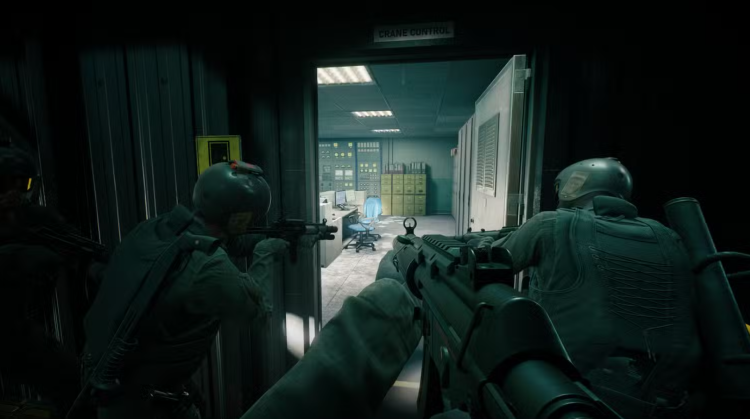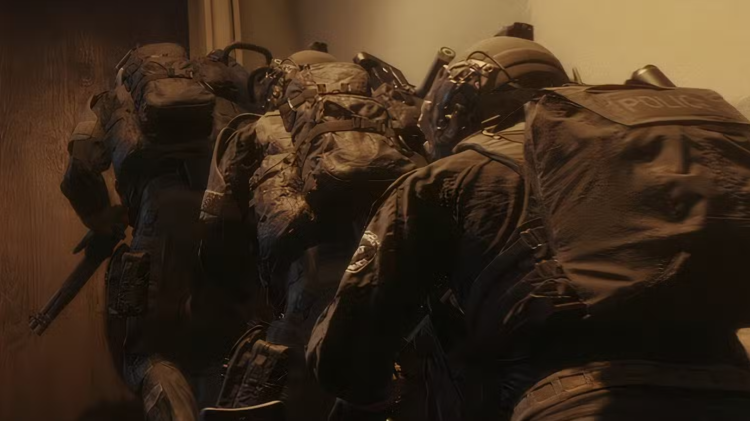Ready or Not Is Selling Fast On Console, Even With Censorship Drama
Ready or Not, the tactical FPS from Void Interactive, is off to a strong start on consoles. Just two weeks after its launch on PlayStation 5 and Xbox Series X|S, the game has already cleared 2 million units sold. That's a huge leap for a title that spent years building up a dedicated PC following, only to face controversy during its console transition.
The sales numbers were shared on LinkedIn by Void Interactive CEO Julio Rodriguez, who thanked players for their support and praised the development team for crafting what he called "the quintessential tactical FPS of our era." That kind of confidence reflects just how well the game has landed commercially, even as it’s been hit with pushback from long-time fans.
Before the console launch, Ready or Not had already carved out a name for itself. It went into early access in December 2021 and was officially released in December 2023. The PC version dominated Steam sales at launch and maintained a healthy player base, often peaking at over 40,000 daily users. Console players had been waiting for a port for a while, and when it finally dropped in July 2025, it didn’t take long to smash records. One million units were sold within the first four days, nearly ten times faster than it took the PC version to hit the same milestone.
Still, all that momentum came with a catch.
“There is no reason to be alarmed.”
That’s what a Void Interactive spokesperson said in late June, just before launch, trying to calm fears about censorship. They explained that the console version had gone through light content changes to meet certification standards from Sony and Microsoft. These edits included toned-down depictions of nudity, torture, and child mistreatment. Void said it only made the changes that were "absolutely required" and insisted the game’s tone and core design were left intact.

One of the biggest changes involved dismemberment—it's still in the game, but only happens while enemies are alive. Void described this as a necessary compromise to keep the mechanic while still respecting platform policies. Other edits were more subtle: some suspect models were given more clothing, in-game evidence with partial nudity was replaced, and certain child-related scenes were softened, like showing a child sleeping instead of convulsing.
The developer also explained that some of these changes had to be made across all platforms. That’s not because of any wider policy, but because some assets were too complex to split between console and PC builds. Swapping textures was easy to isolate, but changing models or animations often meant editing them everywhere.
Even though Void tried to explain the situation, not everyone was convinced.

The backlash began almost immediately, with angry fans accusing the studio of caving to platform demands. Steam reviews from the past 30 days dropped to just 27 percent positive, compared to the game’s all-time rating of 77 percent. Over 14 percent of all reviews—nearly 30,000—were submitted in July alone, many of them negative. The censorship changes became the main talking point, even as console sales continued to grow.
Despite the review-bombing, Ready or Not hasn’t slowed down commercially. Console players have been buying the game in huge numbers, and its momentum doesn’t seem to be fading. Critic reviews remain strong on platforms like OpenCritic, and the console version appears to be holding steady in terms of player engagement.
The irony here is that the very controversy that sparked outrage from PC fans has done little to dent console success. Void Interactive took a cautious approach, making only minimal edits and being upfront about them. That’s helped reassure new players even as it divided the old guard.
There’s still a question of what happens next. If Void chooses to make further content changes or adds more restrictions later on, the backlash could grow. But if the current sales trend continues, Ready or Not might be proof that hitting console markets—while sticking close enough to the original experience—can still be a win, even with some friction.

Comments